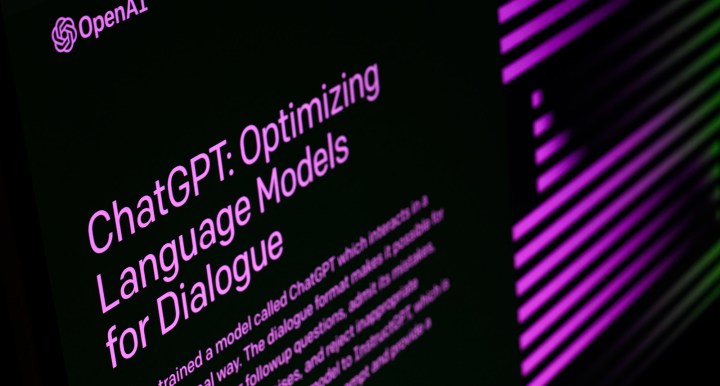GUEST ESSAY
New species of employment: Artificial Intelligence spawns the emergence of the prompt engineer

It pays — a lot — to get in on the ground floor of a new species of employment being hatched by AI.
I was listening to the always entertaining and enlightening Freakonomics podcast recently. It was an odd and weirdly riveting show about a particularly anonymous player in an American football team roster, called the “long snapper”. This guy does one thing and one thing only – he throws the ball backward from between his legs for someone else to catch and play. That’s it. His only job. No running, no kicking, no blocking, no Hail Mary passes.
This roster position did not really exist before the 1990s, when the “technology” of US football started getting much more scientific – you know, data analysis and stuff. And then someone decided that the data implied that this player should be a fixture on the team. It was a new “speciality” position. A new job description wrought by technology.
Which brings us to AI.
Some of us have used ChatGPT, at least to see what the fuss is about. Most others have read about it. And many of us have started to feel that tingle in the gut that happens rarely in one’s lifetime. The thing that says – the world will never be the same again. It happened with the PC, the internet, the smartphone and, at least from my perspective, crypto.
Of course, ChatGPT is not AI and AI is not ChatGPT. The recently launched software occupies a parcel of real estate within the world of “LLMs” (Large Language Models), which live in the world of “Reinforcement Learning with Human Feedback”, which lives in the world of “Deep Learning”, which lives next door to a world called “Generative AI”, which lives in the world of “Machine Learning”, which lives in the greater field of AI.
These worlds within worlds make up a very large and quickly evolving universe. Particularly “Generative AI”, which loosely describes those AI applications that can generate entirely novel content, like ChatGPT, Dall-e, Stable Diffusion, Bard, Midjourney, Claude and various other new entrants.
Consider what a recent article in Time magazine had to say about this particular world”
“Proponents believe this is just the beginning: that generative AI will reorient the way we work and engage with the world, unlock creativity and scientific discoveries, and allow humanity to achieve previously unimaginable feats. Forecasters at PwC predict that AI could boost the global economy by over $15-trillion by 2030.”
Many jobs, careers, even entire employment sectors will be affected, and some are certain to go the way of the typesetter, a highly skilled, well-paid newspaper job that disappeared in a puff of binary digits and computer-controlled precision printing machines in the 20th century.
Visit Daily Maverick’s home page for more news, analysis and investigations
But then again, a whole bunch of new jobs are going to appear. Ones we have never heard of before. Like the long snapper in American football.
And hence the arrival of the “prompt engineer” – a brand new AI job description just starting to pop up in recruiting ads on the internet.
What does this person do? Anyone who has played with ChatGTP or Dall-e will know that the user is required to “prompt” the software. Like “please create a graphic of a cat standing on its head smoking a red striped lighthouse in the style of the Surrealists”. Or “please write me a short story based on an imagined meeting between Nelson Mandela and Adolf Hitler”. Or “please produce a blueprint for a three-bedroom, two-bathroom 300 sq metre house based on Herbert Baker-style architecture”.
The right prompt is critical to getting the AI to produce novel output that conforms to the expectation or even the optimistic hopes of the prompter. As are the subsequent prompts, which further guide the AI to reshape or extend its inventions to more closely mould its output to the user’s intentions.
There are all sorts of interesting aspects to this new position. The first is that the act of prompting actually deepens the knowledge of (some) generative AI systems, turning the user into a teacher at the same time that they are learning. How meta is that?
The second is that the position of prompt engineer is so new, that Josh Tobin (the founder and CEO of AI tooling company Gantry), jokes that perhaps only two people in the world identify themselves as such. And one of the world’s biggest online recruiting companies, ZipRecruiter, rejects the job title as invalid.
There also seem to be almost no training resources to teach the skill. I found a couple of mealy-mouthed short courses that said things like ‘we will teach you to articulate prompts in different ways to get the most desirable or useful output from the AI’. That sort of thing.
And then there is the ad from Anthropic, one of the hottest generative AI start-ups, worth $1-billion without having done much yet. Its ad for a prompt engineer says (and I barely paraphrase here) – ‘please send us some prompts that you have come up with that gets an AI to exhibit complex behaviours’. That’s the entire CV requirement.
The position pays up to $335,000. That’s more than R5-million per year.
The long snapper in the NFL gets about $1-million per year.
It obviously pays to get in on the ground floor of a new species of employment. AI is about to spawn a tribe of them. DM
Steven Boykey Sidley is a Professor of Practice at JBS, University of Johannesburg




















 Become an Insider
Become an Insider
Comments - Please login in order to comment.